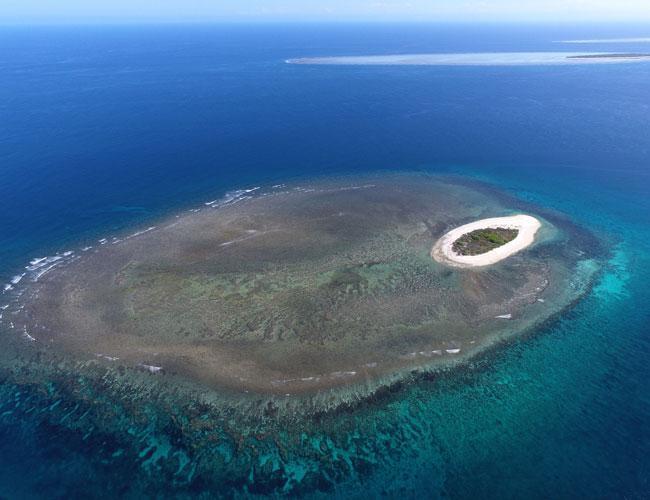
I am deeply convinced that our response to the variety of maritime issues regarding our oceans must be made on a global level. Covering vast geographic distances, the oceans of our planet are indeed one sole entity, within which all elements are interdependent. In this respect, the ocean offers perhaps the most obvious incarnation of this collective responsibility which we must assume, and which we have so much difficulty accepting at a time when multilateralism is readily mocked, and in a world where selfishness, segregation, and negligence are gaining currency.
Focusing on protecting our oceans should help unite our world and help us build a better understanding of it. Our civilization, like almost all the great civilizations which preceded it, is a civilization essentially maritime. 60 percent of the world’s population lives within 60 kilometers of the coast. Three quarters of the world’s megacities are built by the sea. More than three billion of the world’s population get their main sources of protein from the oceans, and sea fishing directly or indirectly employs more than 200 million people around the globe.
However, overfishing and an unsustainable rate of exploitation of many natural resources are gradually taking away life from the oceans. Pollution is a massive threat to ecosystems and affects the health of the seas. The search for new mineral resources is destroying the seabed. Noise pollution caused by maritime traffic affects the development of many marine species. Global warming is also a huge concern for our oceans. It is estimated that to this day, the oceans have absorbed 90 percent of the heat that humans have brought into the climate system.
All of these changes affect the geopolitical balance of our world and bring with them political, health, and military and strategic consequences which demonstrate that our oceans will be the epicenters of major crises in the years to come. This is why we need to look at their fate, mobilize their energies, and come up with sustainable solutions—solutions that, again, must be global.
Collectively, we must seize upon the responsibility to protect the oceans of our planet. We can take action with the development of marine protected areas, which play an important role in mitigating climate change, and promoting the development of species capable of storing carbon and revitalizing ecosystems that also play a role in climate regulation. It is essential to develop maritime areas if we want to achieve the Aichi Biodiversity Targets that we collectively set in 2010, in particular the 11th target, which was to have 10 percent of the sea surface protected. Today, however, less than five percent of our oceans’ surfaces are protected maritime areas, yet many scientists say that an effective target would be around 30 percent.
The unquestionable importance of these protected areas is why since 1977, the Principality of Monaco has created marine protected areas in its own territorial waters in addition to creating them in cooperation with France and Italy. Alongside other heads of state, I am regularly involved in promoting the development of such initiatives, including in international waters such as in the Ross Sea and on the borders of Antarctica, where such an initiative has finally been taken up by the international community. In that vein, together with France and Tunisia, the Principality of Monaco and my foundation created a trust fund dedicated to the financing of marine protected areas in the Mediterranean. Bringing together public and private capital, the fund aims to strengthen and sustain existing marine areas, support regional networks, encourage state involvement and, in the future, fund the development of new maritime areas.
The collective responsibility to preserve the world’s oceans can be the catalyst for a new relationship vis-à-vis our world. This relationship will finally bring out the positive side of globalization, governed by shared rules that benefit both people and businesses, and that is concerned about those who live today as much as for the lives of future generations. This is a relationship that will open up new political, philosophical, and economic horizons—a relationship that at its core will understand that protecting our oceans is of vital interest for humankind.
(*) H.S.H. Prince Albert II is the Sovereign Prince of Monaco.